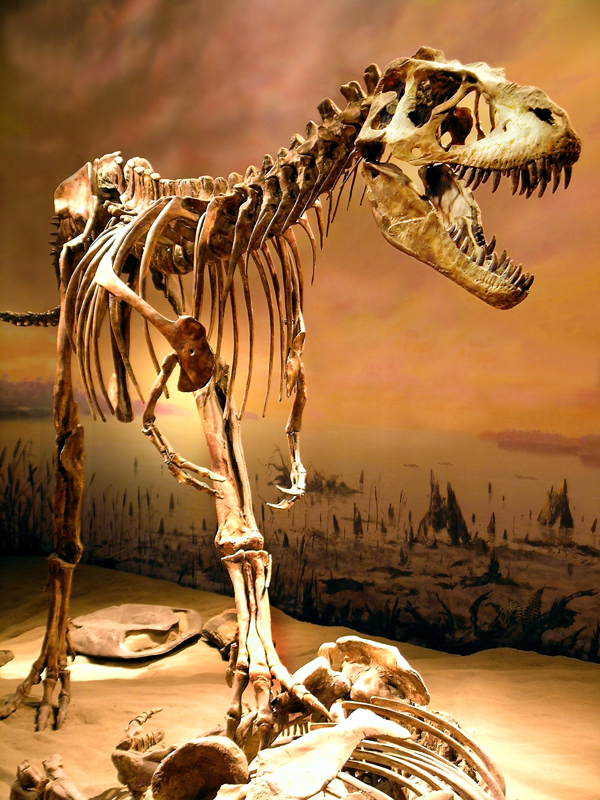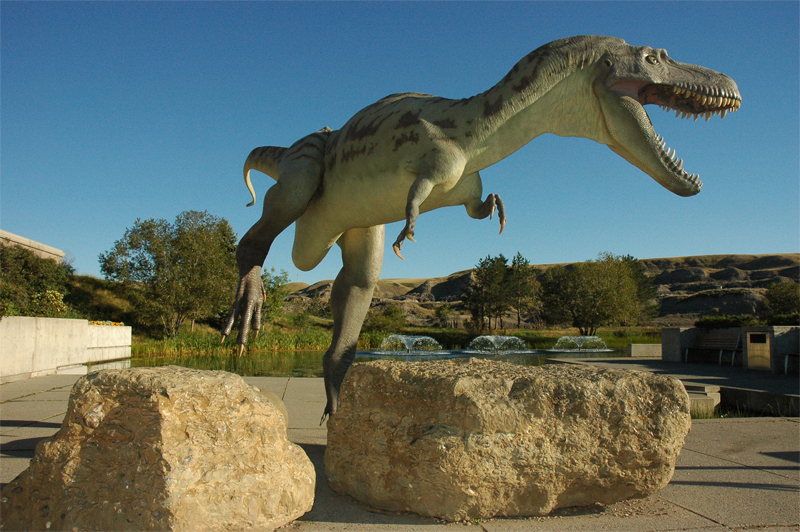When Dinosaurs Roamed, Wildfire Was a Foe

Fierce dinosaurs may not have had to contend with many predators, but intense and frequent wildfires may have been a real threat during their reign, new research suggests. Wildfires seem to have left their mark on the archeological record in the form of charcoal deposits.
The researchers discovered these abundant and widespread fires by analyzing the amount of charcoal in the fossil record. They created a global database of charcoal deposits during the Cretaceous Period (the period from 145 million to 65 million years ago). Many of these charcoal deposits were associated with beds of dinosaur fossils.
"Charcoal is the remnant of the plants that were burnt and is easily preserved in the fossil record," study researcher Andrew C. Scott, a professor from Royal Holloway University of London, said in a statement.
Multiple factors would have fueled these wildfires, which were likely started by lightning strikes. Global temperatures were in general higher than they are today, because of a greenhouse effect in the atmosphere. Higher levels of oxygen filled the ancient atmosphere, and oxygen fuels fires.
This "was why fires were so widespread," study researcher Ian Glasspool, a curator at The Field Museum of Natural History in Chicago, said in a statement. "As at such periods — unlike today — plants with higher moisture contents could burn."
Wildfires have a huge impact ecologically, stripping landscapes of their plants. The widespread fires would have disturbed the environment in which the dinosaurs and other ancient creatures, like reptiles, mammals and birds, lived, and would have meant higher levels of plant turnover as plants were burned and their nutrients returned to the soil.
"Until now, few have taken into account the impact that fires would have had on the environment, not only destroying the vegetation but also exacerbating runoff and erosion and promoting subsequent flooding following storms," Scott said. (Heat from wildfires can reduce the stability of soils, something that would have boosted erosion of those soils.)
Get the world’s most fascinating discoveries delivered straight to your inbox.
The researchers are now assessing the impact that these fires would have had upon dinosaur communities.
The study was published in the journal Cretaceous Research.
You can follow LiveScience staff writer Jennifer Welsh on Twitter @microbelover. Follow LiveScience for the latest in science news and discoveries on Twitter @livescience and on Facebook.
Jennifer Welsh is a Connecticut-based science writer and editor and a regular contributor to Live Science. She also has several years of bench work in cancer research and anti-viral drug discovery under her belt. She has previously written for Science News, VerywellHealth, The Scientist, Discover Magazine, WIRED Science, and Business Insider.
 Live Science Plus
Live Science Plus







